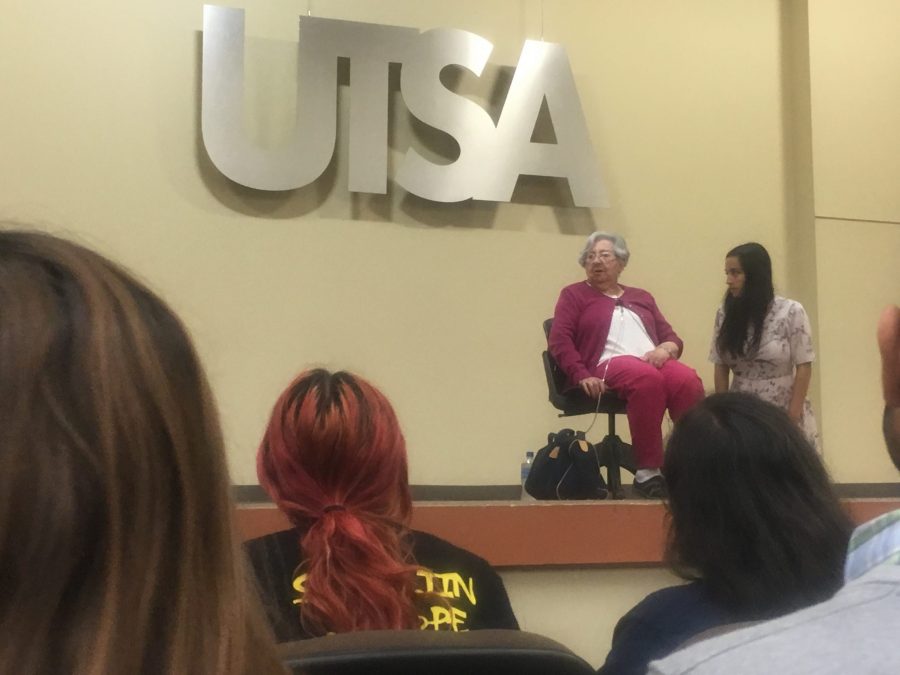On August 6, 1942, Rose Williams was taken to a concentration camp. On October 12, 2017, she sat in a lecture hall full of UTSA students and retold her story.
The Holocaust, which took place during World War II, was the systematic, state-sponsored persecution and murder of six million Jews and millions of Roma, homosexuals and political dissidents by the Nazi regiment and its collaborators. The Nazis, in hopes to wipe out the Jews as a whole, set up mass concentration camps where Jews were starved, forced to do manual labor and gassed to their death. The Holocaust is now seen as one of the great horrors of world history.
Hillel San Antonio, a Jewish student group on campus, brought Williams to share her story of loss, fear and pain to the last generation that gets to hear first hand accounts from survivors. She speaks about her experiences regularly, but at first she found recalling her personal tragedy impossible. It wasn’t until her eldest son was dying from leukemia that she knew she needed to tell her children, and it was that son who made her promise to share her story with others. To this day she still struggles, waking up in the middle of the night in tears after recounting the horrors she lived out to a room full of people. And for those who choose to lend an ear, the experience is unlike any other.
David Golden, a member of Hillel, spoke on the importance of hearing first-hand accounts. “You get the personal stories, and you get the emotion. And as she’s telling it, the cracking in her voice. You get to hear her personal story and how it relates to her. Nothing compares to an actual person getting up and sharing their story. It’s just such a personal experience.”
In 1939, the Nazis began limiting the lives of Jews in Germany, keeping Jewish children out of school and forcing them to wear armbands, food was scarce and life was difficult. When the ghettos were built, Williams and her family were given one hour to move out of their home and into the ghetto. There, her family of six were forced to live in a basement. The ghettos were rampant with sickness and hunger. The day came when the Nazis finally decided to liquidate the concentration camps. On Aug. 6, 1942, they began killing the old and weak and taking the children to the camps to work.
Williams witnessed the murder of her grandmother, was separated from her family and was forced to work in the concentration camp for five years, but she never gave up hope. She said she always felt God led her the right way and she thanked God for not letting her die even when she decided to try to take her own life by volunteering to be sent to the gas chamber.
Golden said that Williams’ positivity “makes any decision that we have to deal with, college, or life or anything just seem so small and insignificant.”
Moshe Lasky, a mechanical engineering senior who is also a member of Hillel asked if he thought he could hold on to his religion if he was in a similar situation responded with a firm “no.” But after some thought added, “Maybe, if I had somebody.”
Williams tells her story with a purpose in mind: to motivate others never to give up and to be strong. “You have to believe in yourself, never give up, love yourself, be strong. Don’t be bashful, if you’re bashful you can’t go far.”








